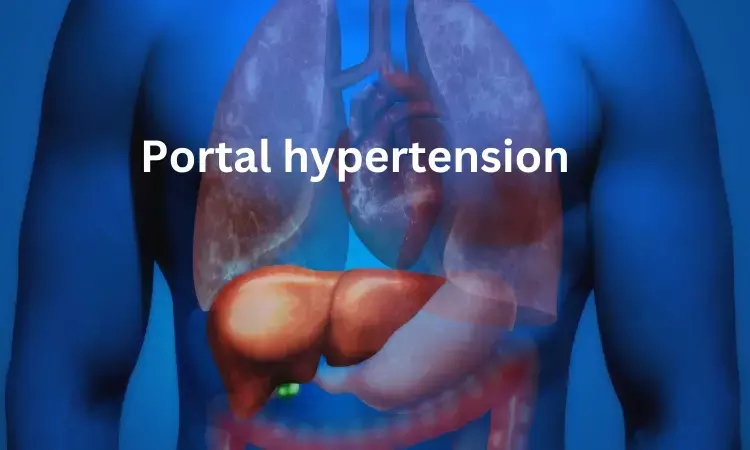- Home
- Medical news & Guidelines
- Anesthesiology
- Cardiology and CTVS
- Critical Care
- Dentistry
- Dermatology
- Diabetes and Endocrinology
- ENT
- Gastroenterology
- Medicine
- Nephrology
- Neurology
- Obstretics-Gynaecology
- Oncology
- Ophthalmology
- Orthopaedics
- Pediatrics-Neonatology
- Psychiatry
- Pulmonology
- Radiology
- Surgery
- Urology
- Laboratory Medicine
- Diet
- Nursing
- Paramedical
- Physiotherapy
- Health news
- Fact Check
- Bone Health Fact Check
- Brain Health Fact Check
- Cancer Related Fact Check
- Child Care Fact Check
- Dental and oral health fact check
- Diabetes and metabolic health fact check
- Diet and Nutrition Fact Check
- Eye and ENT Care Fact Check
- Fitness fact check
- Gut health fact check
- Heart health fact check
- Kidney health fact check
- Medical education fact check
- Men's health fact check
- Respiratory fact check
- Skin and hair care fact check
- Vaccine and Immunization fact check
- Women's health fact check
- AYUSH
- State News
- Andaman and Nicobar Islands
- Andhra Pradesh
- Arunachal Pradesh
- Assam
- Bihar
- Chandigarh
- Chattisgarh
- Dadra and Nagar Haveli
- Daman and Diu
- Delhi
- Goa
- Gujarat
- Haryana
- Himachal Pradesh
- Jammu & Kashmir
- Jharkhand
- Karnataka
- Kerala
- Ladakh
- Lakshadweep
- Madhya Pradesh
- Maharashtra
- Manipur
- Meghalaya
- Mizoram
- Nagaland
- Odisha
- Puducherry
- Punjab
- Rajasthan
- Sikkim
- Tamil Nadu
- Telangana
- Tripura
- Uttar Pradesh
- Uttrakhand
- West Bengal
- Medical Education
- Industry
Carvedilol more effective than non selective beta blockers in reducing portal hypertension

Portal hypertension (PH) is characterized by elevated pressure in portal venous system. The most common cause of portal hypertension is cirrhosis (scarring) of the liver. The PH treatments in patients with compensated cirrhosis is to reduce the risk of hepatic decompensation.
Carvedilol is popularly used to treat high blood pressure and heart failure. It is also used after a heart attack to improve the chance of survival in case if the heart is not pumping well. Several studies are tested to control hepatic blood pressure in patients.
Laura Turco and team summarized in the review the evidence behind Baveno-VII recommendations on the use of carvedilol in patients with cirrhosis.
Carvedilol non-selective beta-blocker (NSBB) acting on hyperdynamic circulation/splanchnic vasodilation and on intrahepatic resistance has shown superior efficacy than traditional NSBBs in lowering PH in patients with cirrhosis and may be, therefore, the NSBB of choice for the treatment of clinically significant portal hypertension reveals a review in Liver International journal.
The key findings of the study are
• In primary prophylaxis of variceal bleeding, carvedilol has been demonstrated to be more effective than endoscopic variceal ligation (EVL).
• In patients with compensated cirrhosis carvedilol achieves higher rate of hemodynamic response than propranolol, resulting in a decreased risk of hepatic decompensation.
• In secondary prophylaxis, the combination of EVL with carvedilol may prevent rebleeding and non-bleeding further decompensation better than that with propranolol.
• In patients with ascites and gastroesophageal varices, carvedilol is safe and may improve survival, as long as no impairment of the systemic hemodynamic or renal dysfunction occurs, with maintained arterial blood pressure as suitable safety surrogate. The target dose of carvedilol to treat PH should be 12.5 mg/day.
In conclusion, Carvedilol is the most potent NSBB in terms of portal pressure reduction and is, therefore, the recommended NSBB for both stages of the disease at the maximum dose of 12.5 mg/day (6.25 mg/bid). In patients with cirrhosis, lowering portal pressure by NSBBs is associated with a clear reduction in the risk of first and further decompensation and ultimately improves survival both in compensated and decompensated patients ended the researchers.
Reference: Reference: Laura Turco, Thomas Reiberger, Giovanni Vitale, Vincenzo La Mura; Carvedilol as the new non-selective beta-blocker of choice in patients with cirrhosis and portal hypertension; DOI: https://doi.org/10.1111/liv.15559
Dr Kamal Kant Kohli-MBBS, DTCD- a chest specialist with more than 30 years of practice and a flair for writing clinical articles, Dr Kamal Kant Kohli joined Medical Dialogues as a Chief Editor of Medical News. Besides writing articles, as an editor, he proofreads and verifies all the medical content published on Medical Dialogues including those coming from journals, studies,medical conferences,guidelines etc. Email: drkohli@medicaldialogues.in. Contact no. 011-43720751


